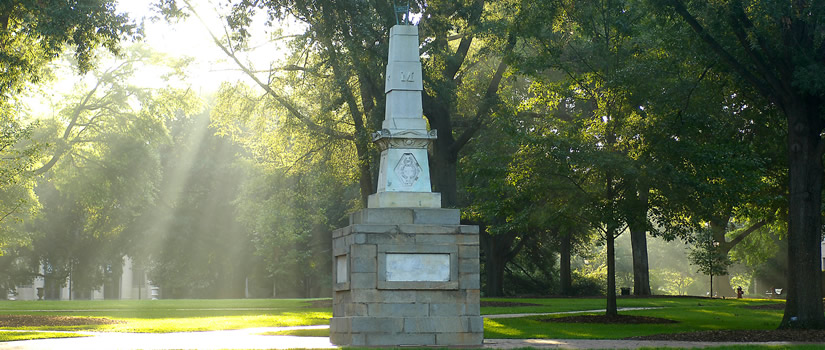Fewer than 30% of Carolina Core courses are offered online or in a blended format. The Center for Teaching Excellence determined that students at USC would benefit by having a greater variety of high-quality Distributed Learning (DL) course options for fulfilling their Core requirements. DL courses include fully online and blended courses (courses that meet in a traditional classroom, studio, or lab for up to 50% of the instruction and deliver the remaining instruction online.) With support from the Office of the Provost, CTE invited full time faculty at the USC Columbia or the Palmetto College campuses to submit proposals for the development of exemplary Carolina Core courses for distributed learning (DL) delivery.
Four proposals were selected to receive Carolina Core Online: Teaching Innovation Grants in Distributed Learning Course Development for the 2016-2017 school year. In addition to funding of $6,000, grant recipients receive expert instructional design assistance, pedagogical resources, and technological support to convert existing Core courses for DL delivery. All the proposals selected this year are for the development of fully online asynchronous courses in which 100% of the instruction is offered online, with no required synchronous class meetings.
Two proposals focus on transforming film and media face-to-face courses to fully online classes. Mark Minett’s class, Introduction to Film and Media Studies (FAMS 240) is a foundation course that meets the Aesthetic and Interpretive Understanding Carolina Core outcome. Introducing students to the study of moving image media, students in this course analyze and discuss numerous examples of film, television, and web-based media. As such, online delivery will enhance learner opportunities to access these materials.
Mark Cooper will develop for online delivery, Film and Media History (FAMS 300) which fulfills the Global Citizenship and Multicultural Understanding: Historical Thinking requirement in the Carolina Core. Through videos highlighting key issues and examples from the past two millennia of media history, Dr. Cooper will provide students well beyond the Columbia campus with a rich learning experience that was previously available only to students in the traditional face-to-face course.
Also fulfilling the Global Citizenship and Multicultural Understanding: Historical Thinking requirement in the Carolina Core is Kathryn “Kay” Edwards’ course European History from Ancient Times to Mid-Seventeenth Century (HIST 101). Having taught this course face-to-face for many years, she looks forward to incorporating rich digital resources and interactive web-based materials into the curriculum, encouraging students to assess sources critically and appreciate how these sources form our narratives about the past.
Carla A. Pfeffer’s project will transform the popular Sociology of Sex Role into a fully online course. In this course, students develop an understanding of the ways in which sex, gender, race, class, sexuality, age, ability, and other factors shape the experiences and opportunities of both individuals and groups. The traditional version of Sociology of Sex Roles often fills to capacity within the first week of enrollment, frequently generating a waiting list of interested students. Offering this course in an online format will respond to student demand and provide additional opportunities for students to access this important course.
Karen E. Edwards, Associate Director for Distributive Learning at CTE who facilitates cohort meetings during the grant period to discuss course development and DL best practices, is excited about this new CTE initiative. “All of us on CTE’s Distributed Learning team are thrilled to be working with these outstanding faculty to provide students with additional high-quality online Carolina Core courses.”
